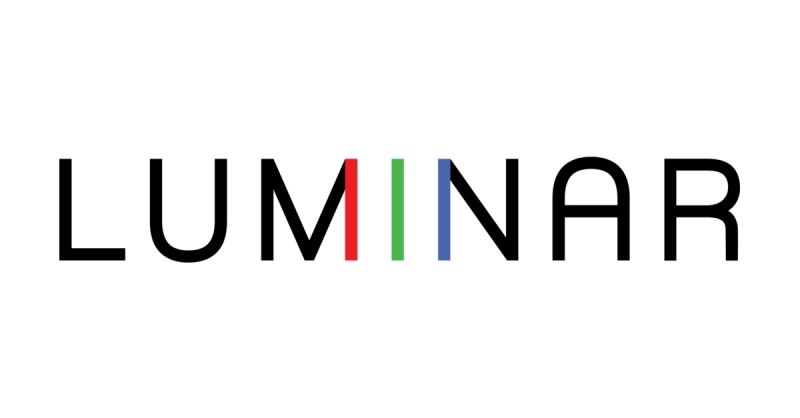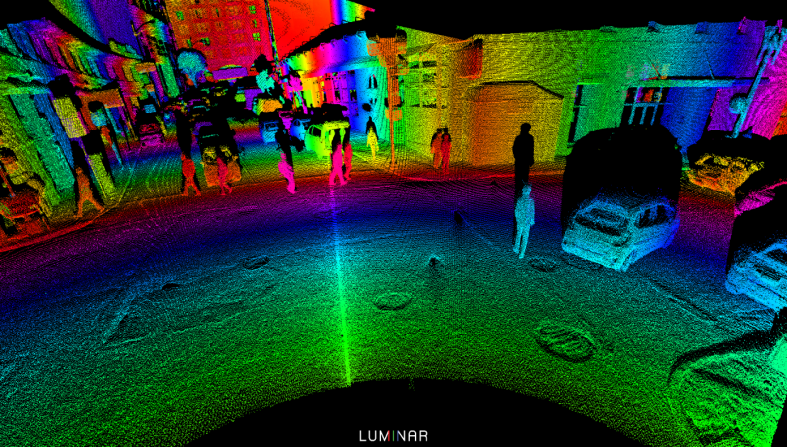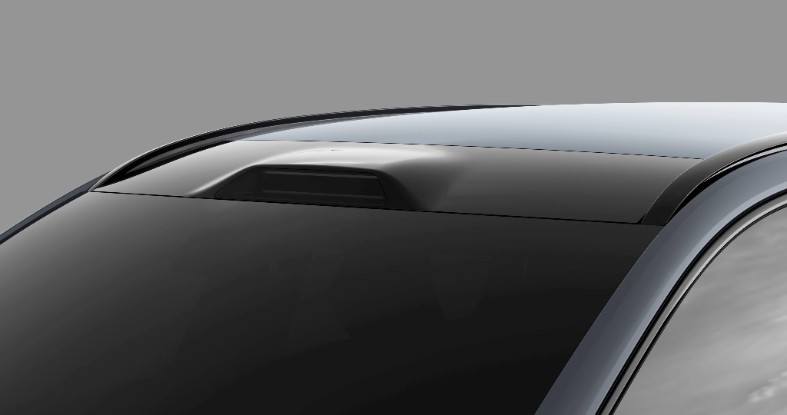Lidar Startup Luminar Technologies Inc. Launches IPO, Making its 25-Year-Old Founder One of the World's Youngest Billionaires
【Summary】With billions of dollars pouring into electric vehicle stocks and related technology for self-driving cars, companies are turning to Wall Street to raise capital. The latest IPO in the space is lidar startup Luminar Technologies Inc. The lidar company has completed its business combination with a special purpose acquisition company (SPAC) Gores Metropoulos, Inc. to become a public company listed on the NASDAQ.

With billions of dollars pouring into electric vehicle stocks and related technology for self-driving cars, more companies are turning to Wall Street to raise capital. The latest IPO in the space is lidar startup Luminar Technologies Inc. The lidar company has completed its business combination with a special purpose acquisition company (SPAC) Gores Metropoulos, Inc. and is now a publicly traded company.
Luminar's shares began trading on the NASDAQ on Thursday under the symbol "LAZR."
Luminar is the second lidar company to go public this year, following the Wall Street debut of Silicon Valley lidar company Velodyne Lidar Inc. on Sept 30.
The Business Combination was approved at a special meeting of Gores Metropoulos stockholders on December 1, 2020. Luminar intends to use the proceeds from its IPO to accelerate growth with over 50 commercial partners while further expanding its autonomous software and advanced driver assist system (ADAS) solutions, the company said.
The combined new company retains the Luminar Technologies, Inc. name.
"This is an incredibly proud moment for the entire Luminar team and a milestone for the industry at large," said Austin Russell, Founder and CEO of Luminar. "Over the past few years, we've made the transition from a technology development startup to now a global provider of autonomous systems to many of the world's largest OEMs and commercial trucking players to power their autonomous future in production. We look forward to accelerating widespread commercial adoption of autonomy and proactive safety solutions and embarking on the next phase of our journey as a public company."

Lidar bounces laser beams off objects to render a 3D view of the enviorment. (Photo: Luminar)
What is Lidar?
The term "lidar" is an acronym for "light detection and ranging." The technology works by sending pulses of laser light and measuring the time it takes to reflect back off objects. The laser beams that are reflected back are used to create a 3D rendering of the environment around a vehicle, including identifying pedestrians, other vehicles and infrastructure.
As ADAS become standard on many new vehicles, there is a growing demand for lidar technology from automakers for level-2 and higher autonomous driving systems. Automakers are turning to lidar developers like Luminar and Velodyne to supply low-cost automotive-grade lidar sensors at scale that can be installed in a vehicle during production.
The images produced by lidar sensors act as the "eyes" of a self-driving vehicle. The technology is often combined with cameras, radar and perception software. It's also a vital sensor to support new safety features such as automotive emergency braking (AEB) and automated cruise control, which are offered in many new vehicles today.
Luminar says it created the only lidar sensor that meets the stringent performance, safety and cost requirements for Level 3 to 5 autonomous vehicles, which are levels of automated driving that require little to no human intervention.
Luminar built a new type of lidar from the chip-level up with breakthroughs across all core components, according to the company. The company claims its advanced lidar is better than its rivals, offering much higher detail and a longer range up to 250 meters. Many lidar sensors produced by other companies can only see about half that distance.
This longer range means that autonomous vehicles have more time to react safely, even at highway speeds. The lidar is paired with Luminar's custom developed software stack, providing automakers with an all-in-one autonomous driving solution that they can add to their vehicles during production.
Luminar was founded in 2012 by 25-year-old Austin Russell when he was still a teenager. Russell was known as a wunderkind in Silicon Valley circles and founded Liminar with a mission to develop a new type of high-resolution lidar for the auto industry and self-driving vehicles.
The Luminar IPO has made Russel one of the world's youngest billionaires and the youngest self-made billionaire in the world, According to Forbes. Russell serves as the company's CEO.
Russell briefly attended Stanford University but left the school to accept a coveted Thiel Fellowship. Founded in 2011 by well known technology entrepreneur Peter Thiel, the Thiel Fellowship is a two-year program for young people who want to build innovative technology.
Russell left Stanford after he received a $100,000 award from the Thiel Foundation to focus full time on his lidar company and accelerate its business. Thiel was also an early investor in Luminar.
Since then, Luminar has grown into a much larger company with 350 employees and offices in Silicon Valley, Colorado Springs, Detroit, and Munich. Luminar has a manufacturing facility in Orlando.
Luminar is Supplying its Lidar Technology to Automaker Volvo Cars
In May, Luminar made headlines when it was chosen by Volvo Cars to supply its lidar perception technology for the automaker's future generation of self-driving vehicles. Luminar's partnership with Volvo will support the automaker's first self-driving technology for highways called "Highway Pilot."
Automaker Volvo was also an early backer of Luminar.. In Feb 2018, Volvo announced its Volvo Cars Tech Fund aimed at investing in high potential technology start-ups in Silicon Valley and around the globe. Luminar was chosen as the fund's first investment in June 2018.
In addition to Volvo's Highway Pilot technology, Volvo Cars and Luminar are also exploring LiDAR's role in improving advanced driver assistance systems (ADAS). Beginning in 2022, Luminar's hardware and software will be integrated into Volvo's global vehicle platform.
Luminar also formed partnerships with Daimler Truck AG and Intel's Mobileye.

A Luminar lidar sensor embedded in the roofline of a Volvo production vehicle.
With investors pouring money into electric vehicle startups and related technologies for self-driving cars, SPAC deals like the one between Luminar and Gores Metropoulos are becoming a popular option to raise new capital, especially in 2020. This year, several high profile mergers resulted in startups becoming public companies.
Hydrogen fuel cell truck startup Nikola Motor Company completed a reverse merger with VectoIQ Acquisition Corp in June. The deal was approved on June 2 by VectoIQ stockholders and resulted in Nikola becoming a publicly traded company listed on the NASDAQ under the stock symbol "NKLA."
In addition, Ohio electric truck startup Lordstown Motors announced this month that it has agreed to go public in a deal with blank-check company Diamond Peak Holdings. The Lordstown Motors IPO was on Oct 26. Its stock is also trading on the NASDAQ under the symbol "RIDE."
Luminar has received approximately $590 million total cash in the business combination. The amount includes $406 million from Gores Metropoulos, as well as $184 million in proceeds from the financing completed in connection with the pending IPO.
Luminar has also received minority investments from Daimler Truck AG, and Volvo Cars.
The financing was led by institutional investors including Peter Thiel, Alec Gores, Volvo Cars Tech Fund, Crescent Cove, Moore Strategic Ventures, and VectoIQ. Alec Gores, CEO of Gores Metropoulos, joined Luminar's Board of Directors as part of the transaction.
"Luminar is unrivaled in its technology and ability to enable autonomy for production vehicles. As a public company, Luminar will now have the platform to fully execute against its vision, further accelerate its commercial programs and expand its already dominant market leadership," said Gores. "We are excited to close this transaction, and I look forward to continuing to work alongside Austin and the entire management team to make our safe autonomous future a reality."
Luminar stock reached $31.51 on Friday, an increase of 37%.
-


Ford is Testing a New Robotic Charging Station to Assist Drivers of EVs With Disabilities
-


Ford Raises the Prices of the F-150 Lightning Electric Pickup Due to Rising Raw Material Costs
-


The BMW 7-Series to Feature HD Live Maps From HERE Technologies for Hands-Free Highway Driving in North America at Speeds up to 80 MPH
-


AutoX to Use the 'Eyeonic Vision Sensor' from California-based SiLC Technologies for its Robotaxi Fleet in China
-


LG Develops ‘Invisible’ Speaker Sound Technology That Could Revolutionize In-Vehicle Audio
-


Researchers at South Korea’s Chung-Ang University Develop a ‘Meta-Reinforcement’ Machine Learning Algorithm for Traffic Lights to Improve Vehicle Throughput
-


Zeekr’s New 009 Electric Passenger Van is the World’s First EV to Feature CATL’s Advanced ‘Qilin’ Battery With a Range of 510 Miles
-


Redwood Materials is Building an Electric Vehicle Battery Recycling Facility in South Carolina
- Tesla’s Model 3 is Reportedly Getting a Redesign to Make it More Appealing as Competition in the EV Segment Grows
- Foxconn-led Mobility in Harmony Consortium Announces ‘Project X’, an Open, Modular Electric Vehicle Platform
- Volvo Cars and Epic Games to Partner on a High-Resolution 3D Digital Driver’s Display Powered by the Unreal Engine
- Tesla Raises Prices in the U.S. as Inflation Chips Away at its Profit Margins
- Elon Musk Wants to Cut Around 10% of Tesla’s Global Workforce, Blames Economic Uncertainty
- J.D. Power Study Finds That EVs Are More Problematic Than ICE Cars
- Consumer Reports Survey Finds Roughly 28% of Respondents Don't Want to Buy an EV
- China's Tech Giant Baidu Plans to Rollout the World’s Largest Fully Autonomous Ride-Hailing Service by Next Year
- Chevrolet Bolt EV, Bolt EUV Get Dramatic Price Cuts
- Nexar Releases its ‘Driver Behavioral Map Data’ That Can Help Autonomous Vehicles Operate More Like Human Drivers











 About Us
About Us Contact Us
Contact Us Careers
Careers